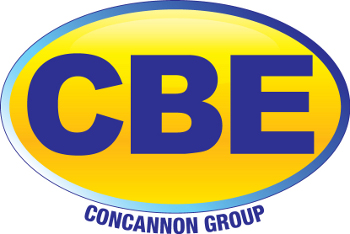Technology trends – Part one

Technology trends are constantly being upgraded with newer, better and faster methods. With a move towards a more cash-less society, retailers are investing in software to boost their business. ShelfLife asked the market leaders one question: Which technology trend will impact the retail industry most significantly this year and why?
14 May 2013

Chris Donnelly, head of IT, Londis
The major technology trend for retail in 2013 will be a blend of two technologies; ‘big data’ and mobile. We know that pressure on margin is the single biggest concern for retailers operating in today’s market and access to ‘big data’ will allow retailers to make better decisions, because these decisions will be more closely aligned with consumer needs than ever before. Technology that protects margin, drives increased efficiencies and enables a focused consumer offer in-store is paramount to the success of any retailer, now more so than ever. In this regard, predictive analytics will enable a vast improvement in efficiency and supply chain optimisation, helping to reduce costs and drive further value to retailers.
In Londis we have been developing and exploiting these technologies for a number of years now and they form the cornerstone of our supply chain. Indeed it was Londis’ exceptional IT platform which enabled such a successful launch of our centralised chill distribution facility last year.
 From a shop floor perspective, providing access to ‘big data’ for managers and floor staff will drive the retail agenda for the foreseeable future. Bringing this information to the shop floor will drive better category management, improved stock holdings, reduced waste and the optimum mix of promotional lines, each of which has a significant role to play in protecting and growing a retailer’s net margin.
From a shop floor perspective, providing access to ‘big data’ for managers and floor staff will drive the retail agenda for the foreseeable future. Bringing this information to the shop floor will drive better category management, improved stock holdings, reduced waste and the optimum mix of promotional lines, each of which has a significant role to play in protecting and growing a retailer’s net margin.
From a consumer perspective, the focus from technology will be to bring this kind of ‘big data’ information in a relevant way to the consumer. The consumer has always been central to the retail trade and technology is now allowing the retailer to communicate, individually, in real-time, with each of their customers. Via technology, retailers can interact with their customers in a more efficient and focused manner than ever before. We see this with the growth of proximity marketing, where customers receive mobile advertising content associated with a particular business in their direct proximity. Furthermore, multi-channel marketing means that with the ubiquitous nature of internet access, online and mobile are playing a pivotal role in driving sales in-store.
Whilst technology is key to enabling us to run our business and engage our consumers, it is unlikely that online grocery retailing will become any bigger than it already is. Whilst in fashion for white goods and more durable retail sectors, online has a key role to play as a route to market, yet the jury is still out as to whether there is a real opportunity for online grocery sales. At present it is simply a cost too far and more likely to put further pressure on a retailer’s profit margin than to become a profit generator. We can see that the retailers who do have an online grocery offering are simply using it as a strategic play to sell consumers white goods and digital content, and will soon be competing with Amazon and Netflix to name but a few.
Other big advances will be payment technologies, Near Field Communications (NFC) and pay by phone. RFID technology, which provides supply chain as opposed to consumer benefits, will come in time, but the cost per unit is still a barrier to RFID in grocery retailing. How quickly this cost can come down will determine when RFID is adopted across the industry. Barcodes have a few years left yet!
Dominic Feeney, systems director, CBE
Using technology to cut day-to-day running costs within the retail environment has been a major priority for CBE in recent years. Thankfully with advancements in the way newer technologies have been developed, there are a number of methods open to retailers to reduce their costs which will, in turn, improve their operations.
Software as a Service (SaaS):
With lower margins and tighter cash flow, many retailers have cut back on capital expenditure programmes which have had a detrimental effect on their business. In order to reduce the capital outlay on new equipment and to enable retailers manage their cash flow more effectively, CBE has developed a new Software as a Service (SaaS) platform. The SaaS model works whereby retailers pay a flat fee each month to use the software, negating the need to spend large sums of money upfront to purchase new hardware and software.
Dominic Feeney, CBE systems director, explains: "This new advancement will enable retailers to access the latest software without having to pay large capital expenditure costs. The SaaS model will enable them to deploy the software, receive regular software updates and also have access to our leading service and support – all for one simple payment each month!" Feeney continued:"SaaS has been around for a number of years within the ICT sector but only now is the infrastructure in place within the retail environment in terms of hardware capabilities and broadband speeds to enable it to be a cost effective solution for retailers".
The flexibility of the platform will also allow retailers to access critical business information on their smartphone or tablet device from a remote location.
Contactless technology
There is a growing demand for retailers to accept contactless payments in Ireland as the rollout of contactless enabled cards becomes more prevalent. Retailers can choose to integrate the contactless terminal with their existing EPOS system or install a standalone device.
Using a contactless debit card, customers can pay for goods or services under €15 by simply holding their card in front of the reader and the transaction is processed automatically. Recent studies have shown that accepting contactless cards can dramatically speed up transaction times and can reduce queues at peak periods. This has proven to be extremely effective in retail environments where speed and convenience are important.
The introduction of contactless has presented retailers with an opportunity to evaluate their transaction charges for all debit and credit card sales. CBE has partnered with Streamline, part of the WorldPay Group – Europe’s leading card payment processor – to offer retailers reduced transaction costs for accepting credit or debit cards at the point of sale. On this new option, Feeney commented: "CBE can now offer a full end-to-end solution whereby we can acquire the merchant ID number, supply the terminals, process the transactions on a daily basis and deliver the money into the retailers’ account. This is all done by dealing with just one company which removes all the hassle for the retailer and can lead to savings in the region of 20%"
To speak with Feeney or to one of CBE’s experienced retail consultants phone 1890 373000, email sales@cbe.ie or visit www.cbe.ie.
David O’Brien, managing director, CashGuard
Technology is moving at an enormously fast pace and is becoming more integrated in our lives. We all interact with technology on a daily basis and technology plays an integral part in the retail industry, allowing retailers to interact with their customers and deliver a better service. One of the obstacles in introducing a new technology to the market is the cost of implementing new systems. However, if you can show retailers how a system can benefit them and more importantly their business and demonstrate a real return on investment for their business, this can remove the obstacle of cost.
From our perspective, we introduced CashGuard to Ireland in 2011. CashGuard is essentially a closed cash register that ensures that there is no access to the store’s cash, only the customer’s. CashGuard manages cash levels, cash floats and counts the cash in the store. The benefit for the retailer is significant control of their cash, eradication of theft and mistakes and a significant reduction in administration as the system automates cash management and provides a full closed loop for cash from customer to bank. Most importantly, with CashGuard, retailers know that their money is protected at all times and fully accounted for. The takings match the POS report everyday.
CashGuard brings real savings and pays for itself in 12 – 15 months. Streamlining the management of cash allows retailers to re-allocate these resources to other areas. One of our customers realised significant savings very quickly. Prior to installing CashGuard, the store had two cashiers and a manager on duty. Now that the manager does not have to spend time on cash management they can work at the tills during the busy period reducing the need for a second cashier and in turn bringing a serious cost saving to the business. Another customer reported that they have much more peace of mind when they are not in the store as the cash is totally protected by CashGuard.



 Print
Print








Fans 0
Followers